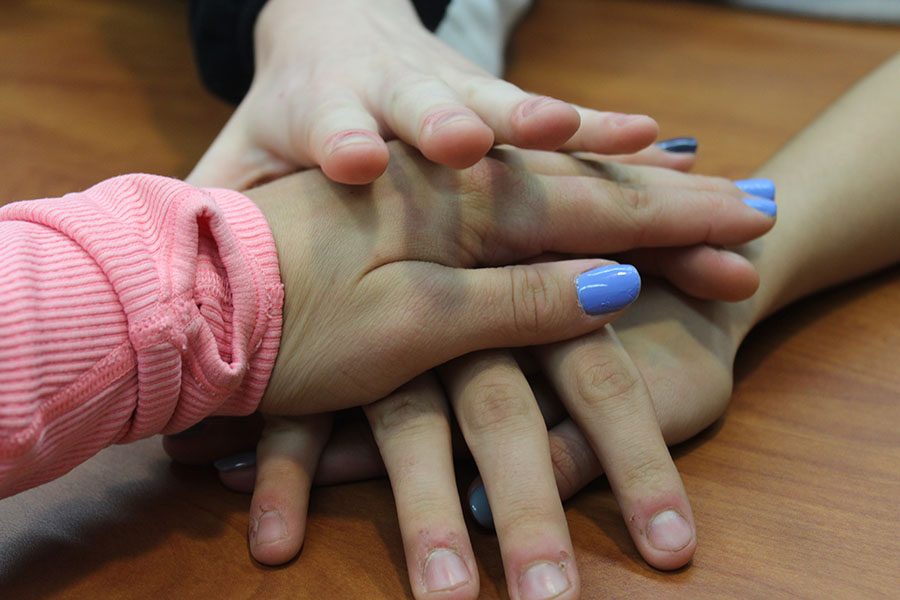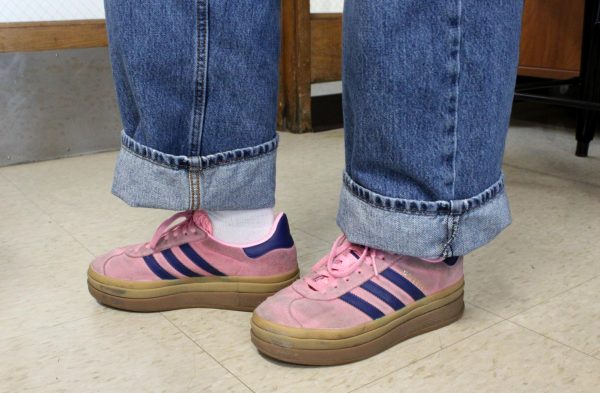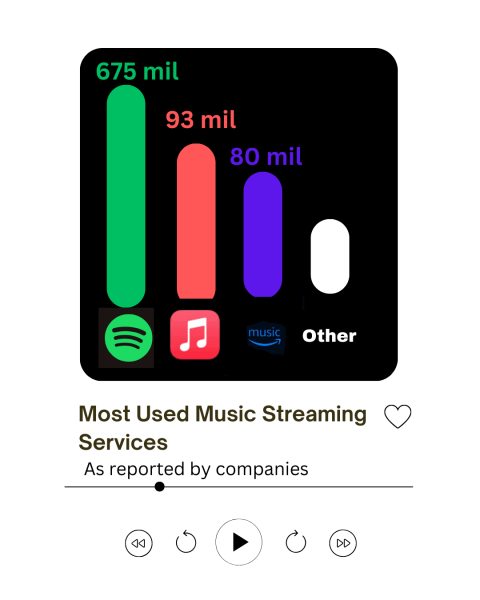It’s a privilege to be privileged
You’re walking down East 72nd St. in downtown Manhattan, surrounded by the whistling bustle of a just waking-up city. The sound of a thousand conversations is muffled by one loud taxicab horn in your left ear. You turn a corner and 40 feet in front of you is a rowdy group of Black Lives Matter protesters, waving their signs with indignation. Police officers struggle to control the increasingly angry group. One police officer, looking like he’s fresh out of the academy, whips out his Taser and uses it on the loudest among the crowd. That’s the last thing you see before it escalates into a mosh pit.
You turn away. It’s not my problem.
Congrats, you just showed your white privilege.
In America, we believe in a systematic democracy and the power of the people. During the national political crap flinging that was last year’sour recent presidential elections, the topic of race became a very prominent subject among our possible leaders. We have seen different political parties arguing about how not-racist they are and how the “black communities” are flooding to election sites to vote for them.
These wars of words led to very strong political lines drawn in the racially fueled sand. Americans everywhere, including myself, sat on their leather sofas with eyes glued to the screen during the Charlottesville incident, widening with every insult thrown and every fire set. I had no idea such hatred was subsisting and growing in our “land of the free and home of the brave”. However, how much real action has been taken since?
White privilege, also occasionally known as white skin privilege, is a term for societal privileges that consciously or unconsciously benefit white-skinned people, beyond what is commonly experienced by people of color under the same social, political or economic circumstances.
In 2017, racism and racial privilege are common topics in the news, at the dinner table and even on social media. People from every range of the political spectrum are very quick to toss names like “bigot” and “racist” towards those who have different beliefs than they do. I’m writing this to spark a discussion because a real discussion needs to occur.
It is white privilege to claim authority on a topic that will have no repercussions on people with your skin color. It is white privilege to be able to call someone a racist when you have never been the subject of racial oppression. It’s talking about how good of a white person you are and how you would never be racist. It’s white privilege to marginalize all Trump supporters as racist. It’s white privilege to do the opposite. The complete disregard for racial issues is a form of white privilege.
And it’s white privilege when any white person decides to vote for a certain candidate with the mindset that any racial issues that occur won’t affect themselves.
This is an oversimplification. The issue is always more complicated than that, because a candidate is always more than their racial treatment. However, it’s also a harsh truth about racial privileges.
If you are personally offended by the “stereotyping” or “generalizations” made about those with white skin or those who vote a certain way, you should probably stop and consider your privilege. Ultimately, a white person does not understand how to pick and choose what is bigoted and what isn’t when it comes to systemic racism in social situations, college admissions, the hiring process, etc. I don’t know, President Trump doesn’t know and Hillary Clinton doesn’t know. The only people who know what mind-crushing, soul-splitting oppression feels and looks like are the ones who have been victims of it.
Our job, as growing citizens of this great country, is to check ourselves. And how can we do that without the education and the experiences to do so? Don’t get me wrong, white privilege isn’t only found in cruel, aggressive, bigoted or snobby people. Everybody displays it at some point. It can come from the nicest person you know as an off-handed joke about never having to worry about cops, or from a friend being able to speak on any particular political subject without being the sole representative of their entire race.
Hopefully, at this point, you’re asking yourself if you ever display or unintentionally preach privilege, or you’re wondering how not to offend anyone in your daily, white life. Here are just a few steps to minimize unintentional privilege or discomfort. During discussions on race, be mindful not to silence people of color. Do not assume you worked harder than a person of color to get where you are today. Don’t expect a person of color to educate you on race whenever you feel like it. Don’t assume people of color are “pulling the race card.” Don’t make assumptions in general.
And finally, make an effort to respect those in your life every day, because how else is this going to stop?












Ben Leonard • Nov 14, 2017 at 5:41 pm
I see where you are coming in that some people might use their white privilege to put themselves infront of others. The major thing aboit this article is that you were all anti rascism, which is good, but you then contradicted yourself with your blanket statements. One example is when you said no white person umderstands who is bigoted or rascist. This is false because im white and I know Trump is a rascist and a bigot, you would probably agree with me. Another issue is that you use the term white privilege wrongly. I can understand that white privilege is here in america, but it is almost never in libertyville. Libertyville doesnt necessarily white privilege, but instead libertyvile and the surrounding towns are privileged. Anyone that lives here no matter race is privileged because we dont live in a dangerous area, or a impoverished area, instead we live in a wealthy area where just about everyone doesnt need to worry about some of the things we see on the news. This doesn’t mean we shouldnt care about though. I appreciate that you wrote a gutsy article like this, but it wouldve been beter if you didnt use blanket statements when talking about stereotypes. I definetely agreed with you on things, but I disareed more. Im answering your call for a conversation, so here you go
Jacob Kemp • Nov 15, 2017 at 11:21 am
Hi! Thanks for participating in the conversation. I see where you’re coming from as well, with my use of white privilege here in Libertyville, but I’m of the personal belief that it exists everywhere, especially where we do have such economic privileges. My use of the blanket statements is also just my personal opinion because I do believe that I won’t understand the racism someone else has faced. Also, I just wanted to clear up that we definitely should care, we just shouldn’t preach about something we’ve never experienced (as some do). However, we should definitely all be advocates for the right thing. That’s why this issue is so complicated, because we do need to speak up, but not speak over. What do you think? I’d love to hear 🙂